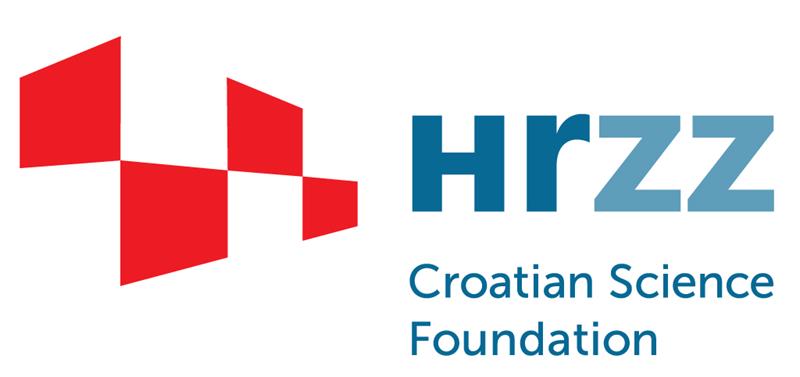Workshop on "Arthur packets and related problems"
Titles and abstracts of the talks
Hiraku Atobe: Computation of local A-packets in Sage, Abstract:
Local A-packets classify the local factors of square-integrable automorphic representations.
I gave a reformulation of Moeglin’s explicit construction of local A-packets,
and proved several properties of representations of Arthur type.
I wrote a Sage code for computing local A-packets and related topics.
In this talk, I will explain how to use my program.
Dubravka Ban: From $GL_2(Q_p)$ to $SL_2(Q_p),$ Abstract:
Starting with the Colmez $p$-adic Langlands correspondence
for $GL_2(Q_p)$, we will describe the corresponding objects for $SL_2(Q_p)$.
Petar Bakić: Theta correspondence and Arthur packets
Abstract:
In his 1989 paper, Adams conjectured that the theta correspondence should exhibit functorial behavior with respect to Arthur packets. The conjecture is known to be true whenever the rank of the target group is large enough; however, it does fail in certain small rank examples. Thus, determining the precise extent of this conjecture is an interesting question. In this talk, we discuss some recent advances in this direction. The work presented in this talk is joint with M. Hanzer.
Barbara Bošnjak: Composition series and unitary subquotients of representations induced from essentially Speh and cuspidal
Abstract:
In this talk we will consider representations of symplectic or special odd-orthogonal group over a non-archimedean local field.
We describe a composition series of a representation induced from essentially Speh and cuspidal representation under certain conditions.
Combined with the previous results of the author, we get irreducible unitary representations of considered groups at the ends of complementary series.
Igor Ciganović: Composition series of a class of induced representations built on discrete series
Abstract:
We give a formula for composition series of a class of induced representations,
appearing in Mœglin-Tadi ́c classification of discrete series, when the GL part
of the induced representation admits no reducibility, with the respect to the
contragredient permutation of involved segments, whose number is not limited.
Neven Grbac: On the Franke filtration
Abstract: The Franke filtration is a finite descending filtration of the spaces of automorphic forms on the adelic points of a reductive connected linear algebraic group defined over a number field. It is defined in terms of the main values of derivatives of cuspidal and degenerate Eisenstein series. The main property of the filtration is that the quotients can be described in terms of parabolically induced representations. This talk will provide an overview of the Franke filtration and exhibit the subtleties of the filtration through examples. Parts of this talk are joint work with Harald Grobner.
Nadya Gurevich:Gelfand -Graev representation for covering groups and applications
Abstract:
One obvious contrast between representations of linear and covering groups is the failure of uniqueness of Whittaker model.
The functor, associating to every representation the space of Whittaker functionals on it, is represented by the Gelfand-Graev representation V.
We study the Iwahori-Hecke algebra module of Iwahori-fixed vectors of V for a covering group G.
The projectivity of this module allows us to compute dimensions of Whittaker spaces of constituents of unramified principal series
induced from (a) regular (b) unitary characters.
This is a joint work with Fan Gao and Edmund Karasiewicz.
Arnaud Mayeux: Around constructions of supercuspidal representations
Abstract:
I will compare Bushnell-Kutzko and Sécherre's constructions for GL_N and its inner forms to Yu's construction for tame groups. Then I will talk about some related formalisms and constructions (dilatations, congruent Moy-Prasad isomorphism, attractors associated to monoids and roots groups) using Grothendieck's scheme formalism.
Alberto Minguez:The explicit Zelevinsky-Aubert involution
Abstract: Let F be a local non-archimedian field. In 1980, A. Zelevinsky defined an involution pi -> pi^t in the Grothendieck group of finite length complex smooth representations of GL(n,F) and conjectured that this involution preserves irreducibility. A.-M. Aubert showed that Zelevinsky's definition can be extended to the Grothendieck group of finite length complex smooth representations of any connected reductive p-adic group G and proved that the involution preserves irreducibility. In 1986, C. Moeglin et J.-L. Waldspurger gave an algorithm to compute the Langalnds parameters of pi^t in terms of the parameters of pi in the case where pi is an irreducible representation of GL(n,F). In this talk I will treat the cas where G is the group Sp(2n,F) or SO(2n+1,F). It is a joint work with H. Atobe.
Sonja Žunar:On the Schwartz space $ \mathcal S(G(k)\backslash G(\mathbb A))$
Abstract:Let $ G $ be a connected reductive group defined over a number field $ k $ with adele ring $ \mathbb A $.
We introduce the Schwartz space $ \mathcal S(G(k)\backslash G(\mathbb A)) $ -- an adelic version of Casselman's Schwartz space $ \mathcal S(\Gamma\backslash G_\infty) $, where $ \Gamma $ is a discrete subgroup of $ G_\infty=\prod_{v\mid\infty}G(k_v) $. The strong dual $ \mathcal S(G(k)\backslash G(\mathbb A))' $
has many intriguing properties, e.g., its (naturally defined) G\aa rding subspace may be identified with the space $ C^\infty_{umg}(G(k)\backslash G(\mathbb A)) $
of smooth functions of uniform moderate growth. We will describe the closed irreducible admissible $ G(\mathbb A) $-invariant subspaces of $ \mathcal S(G(k)\backslash G(\mathbb A))'$ and discuss applications to automorphic forms. This is joint work with Goran Muić.

